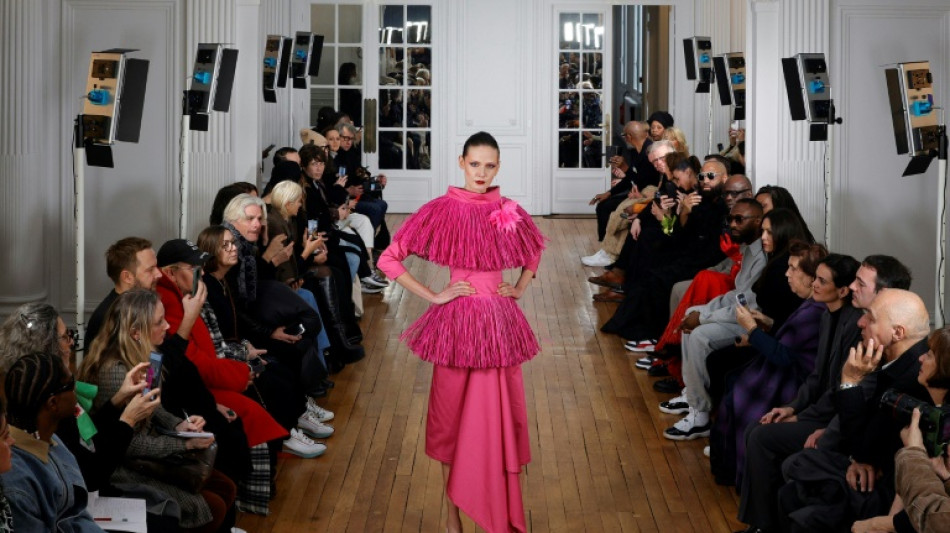
-
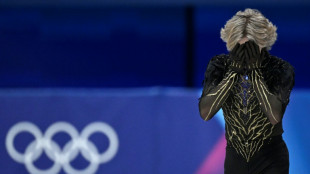 Malinin meltdown hands Shaidorov Olympic men's figure skating gold
Malinin meltdown hands Shaidorov Olympic men's figure skating gold
-
Top seed Fritz makes ATP Dallas semis with fantastic finish

-
 Patriots star receiver Diggs pleads not guilty to assault charges
Patriots star receiver Diggs pleads not guilty to assault charges
-
Havana refinery fire under control as Cuba battles fuel shortages

-
 Peru Congress to debate impeachment of interim president on Tuesday
Peru Congress to debate impeachment of interim president on Tuesday
-
Snowboard veteran James targets 2030 Games after Olympic heartbreak

-
 Costa Rica digs up mastodon, giant sloth bones in major archaeological find
Costa Rica digs up mastodon, giant sloth bones in major archaeological find
-
Trump says change of power in Iran would be 'best thing'

-
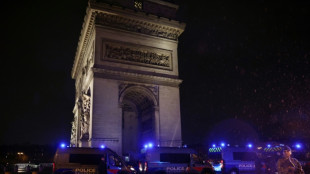 Paris police shoot dead knife man at Arc de Triomphe
Paris police shoot dead knife man at Arc de Triomphe
-
Japan's Totsuka wins Olympic halfpipe thriller to deny James elusive gold

-
 Canada's PM due in mass shooting town as new details emerge
Canada's PM due in mass shooting town as new details emerge
-
Neto treble fires Chelsea's FA Cup rout of Hull

-
 Arbitrator rules NFL union 'report cards' must stay private
Arbitrator rules NFL union 'report cards' must stay private
-
Dortmund thump Mainz to close in on Bayern

-
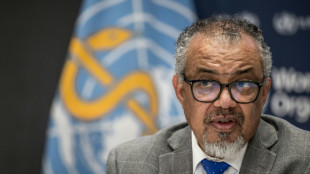 WHO sets out concerns over US vaccine trial in G.Bissau
WHO sets out concerns over US vaccine trial in G.Bissau
-
Skeleton racer Weston wins Olympic gold for Britain

-
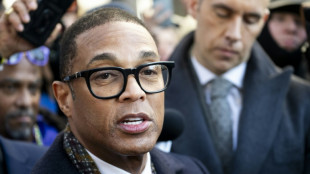 Ex-CNN anchor pleads not guilty to charges from US church protest
Ex-CNN anchor pleads not guilty to charges from US church protest
-
Berlin premiere for pic on jazz piano legend Bill Evans

-
 Fire at refinery in Havana as Cuba battles fuel shortages
Fire at refinery in Havana as Cuba battles fuel shortages
-
A Friday night concert in Kyiv to 'warm souls'

-
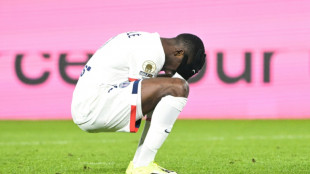 PSG stunned by rampant Rennes, giving Lens chance to move top
PSG stunned by rampant Rennes, giving Lens chance to move top
-
Japan's Totsuka wins Olympic halfpipe thriller as James misses out on gold

-
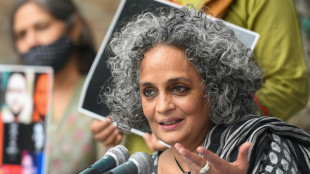 Indian writer Roy pulls out of Berlin Film Festival over Gaza row
Indian writer Roy pulls out of Berlin Film Festival over Gaza row
-
Conflicts turning on civilians, warns Red Cross chief
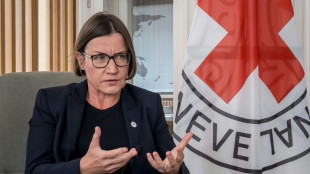
-
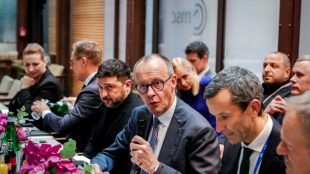 Europe calls for US reset at security talks
Europe calls for US reset at security talks
-
Peru leader under investigation for influence peddling

-
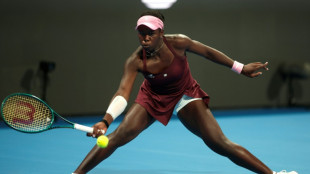 Rising star Mboko sets up Qatar Open final against Muchova
Rising star Mboko sets up Qatar Open final against Muchova
-
Canada PM to mourn with grieving town, new details emerge on shooter

-
 US waives Venezuela oil sanctions as Trump says expects to visit
US waives Venezuela oil sanctions as Trump says expects to visit
-
NBA star Chris Paul retires at age 40 after 21 seasons

-
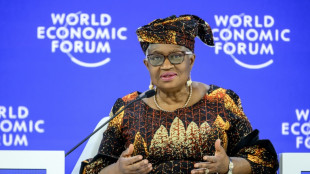 WTO chief urges China to shift on trade surplus
WTO chief urges China to shift on trade surplus
-
Vonn hoping to return to USA after fourth surgery on broken leg

-
 Trump sending second aircraft carrier to pile pressure on Iran
Trump sending second aircraft carrier to pile pressure on Iran
-
Heraskevych loses Olympics disqualification appeal, Malinin eyes second gold
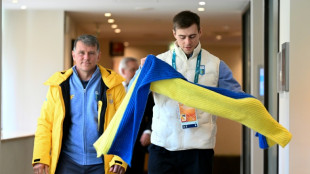
-
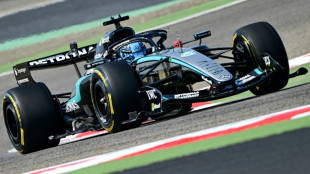 Mercedes have 'taken a step back': Russell
Mercedes have 'taken a step back': Russell
-
Madagascar cyclone death toll rises to 40, water, power still out
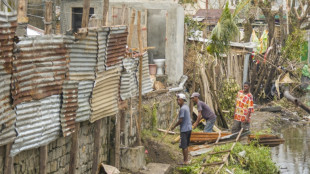
-
 Earl says England inspired by last year's Calcutta Cup
Earl says England inspired by last year's Calcutta Cup
-
USA romp past Dutch in T20 World Cup to keep Super Eight hopes alive

-
 De Minaur scraps past local legend van de Zandschulp
De Minaur scraps past local legend van de Zandschulp
-
Ukrainian Heraskevych loses appeal against Olympics disqualification

-
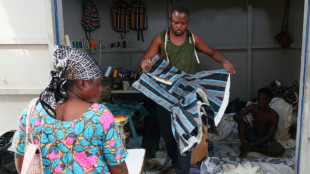 Ghana rallies round traditional tunic after foreign mockery
Ghana rallies round traditional tunic after foreign mockery
-
Forest set to hire former Wolves boss Pereira: reports

-
 England rugby captain Itoje slams Ratcliffe's 'ridiculous' immigration comments
England rugby captain Itoje slams Ratcliffe's 'ridiculous' immigration comments
-
Europe should speak to Russia with 'one voice', Putin foe says

-
 US Congress impasse over immigration set to trigger partial shutdown
US Congress impasse over immigration set to trigger partial shutdown
-
US to deploy new aircraft carrier to Middle East as Trump warns Iran

-
 Ubisoft targets new decade of 'Rainbow 6' with China expansion
Ubisoft targets new decade of 'Rainbow 6' with China expansion
-
Stocks trend lower as AI disruption worries move to fore
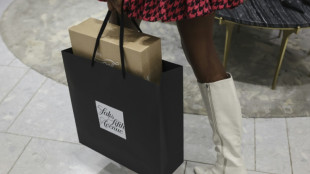
-
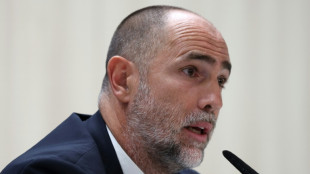 Spurs set to hire Tudor as interim boss until end of season: reports
Spurs set to hire Tudor as interim boss until end of season: reports
-
International crew en route to space station


Imane Ayissi brings African tradition to Paris couture
Imane Ayissi is on a mission to put authentic African textiles in the spotlight but faces an uphill battle as a pioneer African couturier at Paris Fashion Week.
The bark of the Obom tree, kente cloth from Ghana and kapok fibres from Burkina Faso are some of the textiles -- little-known in Europe -- that the Cameroonian turned into bespoke dresses for his haute couture show in Paris on Monday.
"Often when we talk about African fashion, we think of colourful fabrics that Africans actually only started wearing relatively recently," Ayissi told AFP at his workshop ahead of the show.
Ayissi -- who in 2020 became the first designer from sub-Saharan Africa at haute couture week -- seeks to resurrect more traditional fabrics like rafia, drawn from local trees and plants, that were used before the African market was flooded with imports during the colonial period.
"These (foreign) fabrics killed the economy of real African textiles and their history. It's painful," said the 55-year-old former dancer, whose father was a renowned boxer.
Before a crowd including footballer Mamadou Sakho, Ayissi showed how traditional textiles can be reworked -- into colourful, statuesque pant suits, intricate floral tops and a flamingo-pink rafia dress.
The show coincided with the release of a UNESCO report highlighting the potential of the fashion sector in Africa, where 32 countries already host a fashion week and the sub-Saharan clothing market alone surpassed $30 billion in 2020.
"African fashion is a very dynamic sector with a bustling creative ecosystem," UNESCO's Toussaint Tiendrebeogo told AFP.
Ayissi is one of the figureheads, feted in a hit exhibition of African fashion at London's Victoria and Albert Museum and New York's Brooklyn Museum last year.
But he admits it is tough to survive as an independent designer, especially since he joined Paris Fashion Week just as the Covid-19 pandemic struck.
"I don't complain, I adapt, but it can be tiring," said Ayissi.
"I don't have an investor behind me. When you're showing alongside Chanel and Dior and the big houses, you have to be up to the task, you have to have the means. It's not easy. I have to rely on my savoir-faire."
- 'Africans must wake up' -
A key difficulty is sourcing quality materials from Africa, where Ayissi says the industry has failed to keep up with international standards, forcing him to import cotton from other places.
The UNESCO report backed up his concerns, saying 81 percent of cotton exported from Africa was raw, going elsewhere to be processed and then sold back to the continent at higher prices.
The report also highlighted the failure to protect African intellectual property, citing falling sales of kente fabric from Ghana or Maasai designs from Kenya after they were copied wholesale in Western and other foreign markets.
"My challenge is to show that Africa is standing up, and to present these African fabrics that the world doesn't know about," said Ayissi.
"But Africans need to be aware, too."
"We have to train. African investors must believe in art and intellectuals. For a very long time, Africans have been buying other people's luxuries. But the basis of luxury is pride in one's identity."
He works with embroiderers in Ghana and elsewhere to raise standards, but says the industry is still too small and piecemeal.
"Africans must wake up," he said. "They need to understand that fashion is a real, noble profession and a big economic machine."
T.Ward--AMWN
